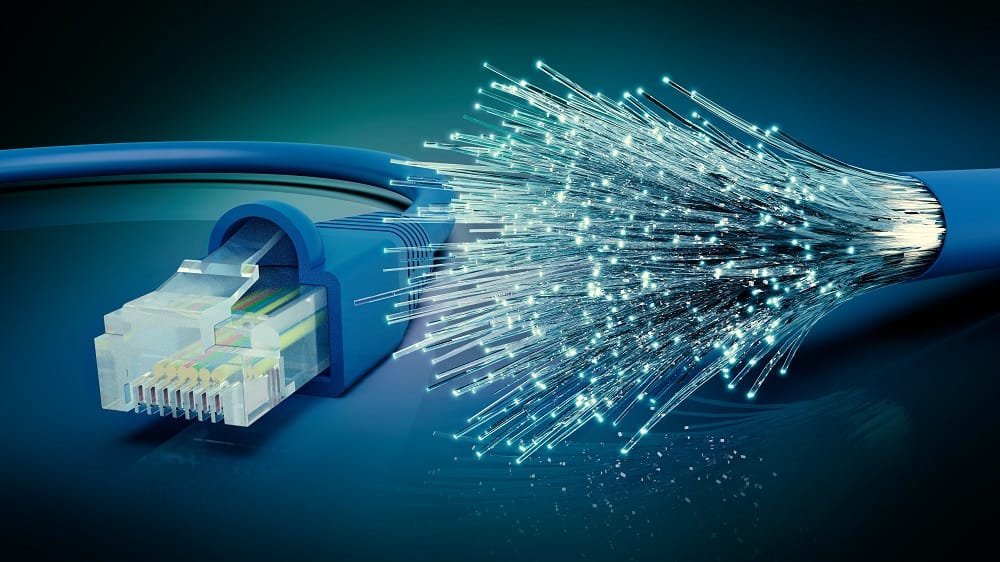Technology has transformed the way businesses operate, thanks to the internet. In recent years, online connectivity has become a necessity for businesses rather than a luxury. In a world where being online is at the heart of human interactions, having a reliable internet connection is a must for every business.
There are several forms of internet connections available in the market. The differences, though, lie with the type of technology a provider uses. For instance, cable and DSL internet service providers (ISP) use copper lines to transmit electrical data. While these forms are fast, the real game-changer is fiber internet.
Fiber internet uses technology that makes it way faster than DSL or cable connections, and it’s known as fiber optics. By providing high-speed Wi-Fi, fiber optic technology is increasingly becoming the new standard in global internet usage.
Traditional Internet Vs. Fiber Internet
To understand how fiber internet works and the benefits it could bring to your business, you need to understand the basics of internet connectivity per se. Soon, you can switch to fibre broadband and join the thousands of American businesses reaping the rewards of this kind of connectivity..
For starters, you need to know that fiber internet represents a huge departure from the traditional forms of internet connectivity, namely the DSL and cable types. To provide these types of access, ISPs use satellite signals and copper cables. Fiber internet providers, on the other hand, use fiber optic lines to transmit data.
Fiber optic lines are numerous tiny plastic cables or glass strands measuring about a tenth of the size of a human hair strand. Data is transmitted using light pulses that travel through the tiny fiber cables at extremely high speeds, almost matching light speed. Fiber internet also comes with greater bandwidth and a higher range over which information can travel.
What this simply means is that American businesses can now send and receive high amounts of data at fast speeds. Thus, using fiber internet for business in Houston, TX, for example, would definitely provide Texans a safer way for transmitting data compared to traditional forms of internet. The signals sent with this technology are less susceptible to interception or interference. Fiber optic lines are also more resistant, meaning they are less likely to experience damage from a fire or other environmental hazards.
Unlike traditional forms of internet connectivity that rely on electrical signals transmitted through copper cables, the efficiency of fiber internet is not affected by distance. This means the further your business is from the ISP’s physical network node, the more your DSL and cable internet will experience distortion and attenuation challenges.
This is not the case with fiber internet. Its signals can travel far without losing quality. This is why fiber internet works well when it comes to transmitting data over long distances. Also, fiber internet is not affected by power outages because the signals don’t rely on electricity, unlike copper cables. As such, a fiber internet connection means your business will have consistent access to fast and stable internet service.
How Can Fiber Internet Help Your Business?
Another way to understand the workings of fiber internet is to enumerate the most common and useful applications it has to boost your business growth. These include:
- Facilitating Video And Data Streaming
Due to its high transmission speeds and reliability, fiber internet can support the transfer of vast amounts of data to different parts of the world, making it easier for businesses to stream videos and data. For businesses with employees working in different geographic locations, fiber internet enhances real-time collaboration through data sharing and video conferencing. As a result, employees enhance their productivity, improve efficiency at the workplace, and companies could cut unnecessary travel costs often incurred when facilitating in-person meetings.
- Cloud Storage
The cloud system is the new way of storing data, but it requires users to have internet connections that are both fast and reliable. Over two decades ago, software hosting was done on-site in local servers or PC hard drives. Today, the majority of software companies now host their software in the cloud. Businesses with fiber internet can access the cloud easily to store documents or to use varied cloud services.
- Better Security
In general, businesses that use fiber optic technology enjoy better data security than those using DSL or cable. Hackers won’t have easy access when tapping fiber cables as they do with copper cables. If their ISPs also have a great system set up for them, then this will not be a cause for concern. Of course, not everything is fool-proof in this world, so it’s always better to take added precautionary measures against hackers on top of installing fiber internet.
Final Thoughts
Most businesses use the internet for a wide range of things, from marketing to managing day-to-day activities and even data storage. To effectively do this, businesses need fast and reliable internet. Fiber internet provides the best solution. Through the use of fiber optics, this technology provides a high-speed internet connection that enables businesses to store data and transmit high amounts of information over long distances with ease.
